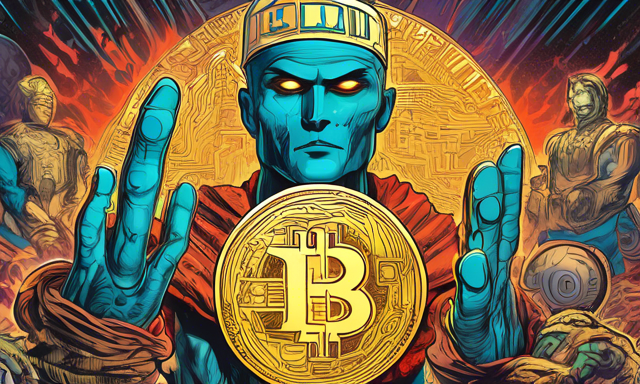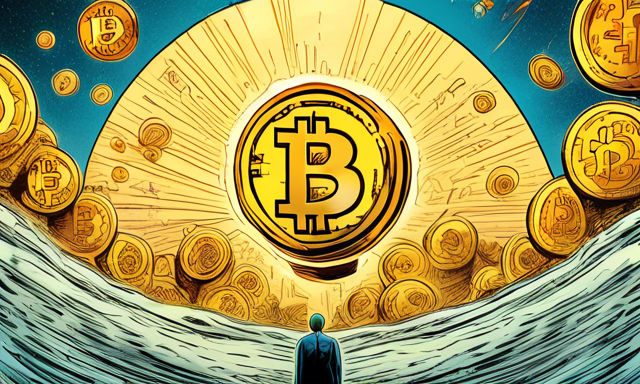💡 Summary of Recent SEC Action Against Immutable
This year, Immutable has been targeted by the SEC with a Wells Notice related to its IMX token sales conducted in 2021. The sudden regulatory action has raised concerns and led to a notable drop in token value. Immutable disputes the SEC’s approach, describing regulatory practices as enforcement-driven.
📉 SEC’s Notice to Immutable
This year, the Web3 gaming firm Immutable has found itself in a challenging situation as it received a Wells Notice from the U.S. Securities and Exchange Commission (SEC) regarding its IMX token transactions from 2021. Strikingly, this notice followed just hours after the company’s initial discussion with the SEC, showing a swift regulatory action.
The Wells Notice is a formal communication indicating the SEC’s intention to pursue enforcement actions, though it offered limited insight into the investigation’s specifics. Immutable has pointed out that the notice contained less than 20 words of relevant explanation, making only brief references to certain statutes.
🚨 Focus on Token Listings
The government’s inquiry appears to concentrate on the listings and private sales of IMX tokens back in 2021. Notably, this includes an early investment made by Huobi Ventures Blockchain Fund, which priced the IMX tokens at $0.10 during what was referred to as a “$10 pre-100:1 split.”
In reaction to the notice, Immutable has expressed strong objections to the SEC’s methods. The company counters claims that no “exchange of value” occurred in their deal with Huobi Ventures, asserting that the investment was valid and underpinned by substantial consideration.
📊 Market Reaction
The SEC’s Wells Notice extends beyond Immutable alone; it has also been issued to the firm’s CEO and the Digital Worlds Foundation, the parent organization of the IMX token issuer. Additionally, Immutable disclosed that they are aware of related inquiries from the Department of Justice, however, no legal claims have been officially presented.
🤝 Industry Context
Immutable joins a list of various crypto firms that have recently received Wells Notices from the SEC, including prominent names such as Coinbase, Ripple, OpenSea, and Crypto.com. This ongoing trend illustrates the regulator’s intensified scrutiny over the cryptocurrency landscape.
Robbie Ferguson, co-founder of Immutable, took to public communication to address these developments, emphasizing the company’s determination to uphold “digital ownership in gaming.” He drew comparisons between Immutable’s circumstances and those faced by other companies such as Robinhood and OpenSea, which have dealt with similar regulatory issues.
⏰ Concerns Over Regulatory Practices
The timing and delivery of the Wells Notice have raised concerns within the industry. Initially, Immutable announced that they were informed by the SEC a notice would arrive “within the week.” Surprisingly, they received it merely hours later. This has led to criticism regarding what Immutable characterizes as the SEC’s arbitrary criterion for labeling tokens as securities.
Despite the SEC’s broader interpretation of which tokens may classify as securities, Immutable maintains that its IMX token should not be categorized in this way. The rapidity of this escalation, from initial contact to now confronting a Wells Notice, has spurred the company to advocate for a thorough dialogue aimed at clarifying the facts surrounding their situation.
⚖️ Broader Regulatory Environment
This recent event happens against a backdrop of heightened regulatory activity in the cryptocurrency domain, particularly under SEC Chair Gary Gensler. This aggressive stance has met with criticism from various U.S. policymakers who claim that such actions create uncertainty within the digital asset market.
Some lawmakers have specifically questioned Gensler’s introduction of phrases like “crypto asset security,” arguing that it adds to the already convoluted regulatory framework facing the industry.
🔥 Hot Take
The situation with Immutable reflects a significant moment in the evolving dialogue between cryptocurrency businesses and regulators. As regulatory scrutiny intensifies, firms must navigate a landscape fraught with ambiguity. Immutable’s case serves as a reminder of the complexities surrounding crypto regulation and the ongoing need for clarity as the industry progresses.





 By
By
 By
By
 By
By
 By
By

 By
By